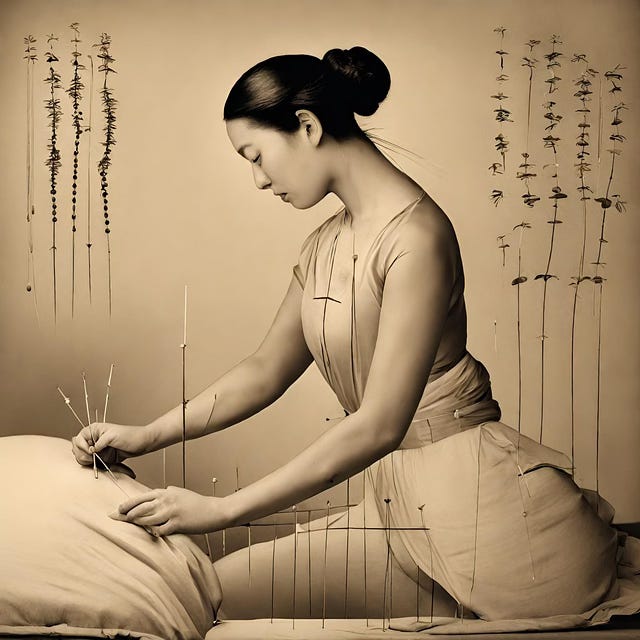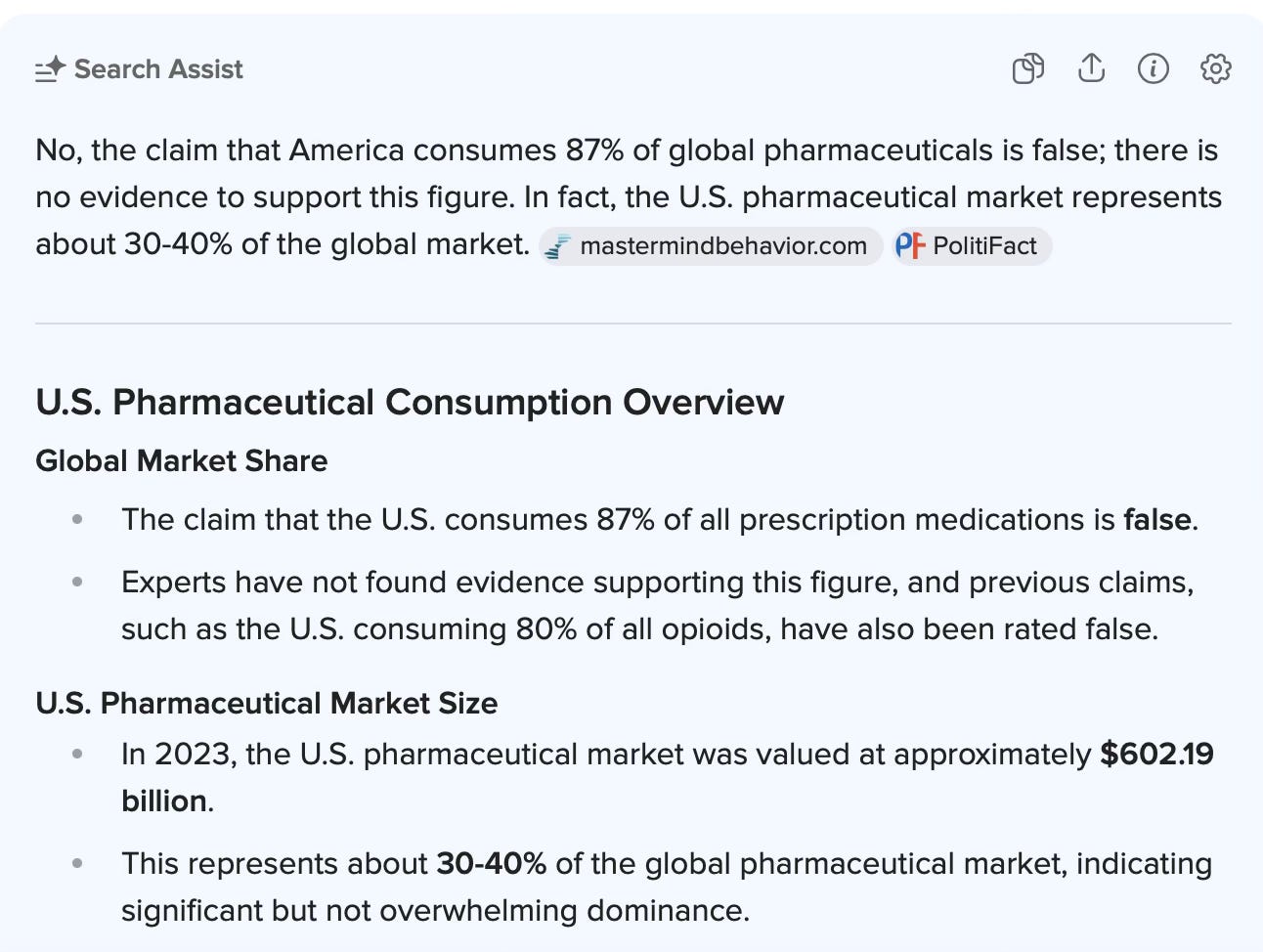Should You Try "Alternative" Therapies?
And if so, how do you know which ones are safe and which to avoid? Here's my 3-step framework for deciding.
While most Americans will loudly and proudly defend the supposed virtues of capitalism, there is perhaps no area in which capitalism has had as profound and deleterious an effect on American life as in the realm of healthcare. I remember reading a statistic that said that although America only makes up 5% of the global population, we consume nearly 87% of global pharmaceuticals.
USA Today “debunked” that statistic, claiming that while the U.S. actually makes up only about 4% of the global population, but “only” consume around 8% of global pharmaceuticals. Interestingly, Duck, Duck Go’s AI powered search assist claimed that while the 87% of consumption of global pharmaceuticals number was not, in fact, accurate, neither was the mere 8% that USA Today claimed. AI puts the number at 30-40%, which (in my opinion) is probably much more accurate, yet still alarmingly high,
Considering we only account for about 4% of the global population, we should account for 4% or less of global pharmaceutical consumption. Especially when you consider that the U.S. is a first-world country with most Americans having ready access to plenty of food, water (and in most cases, running water), and extensive waste management systems. Considering that the lack of these things is linked to the worst global health outcomes, we should be one of the healthiest countries in the world. Yet we are clearly not.
And, although we currently “only” consume 30-40% of the world’s pharmaceuticals, not only are those numbers rising rapidly, but we also pay significantly more for them.
In the U.S.’s fee-for-service system, physicians are paid based on the number of services provided and pharmacies are reimbursed depending on the number and length of time for which prescriptions are filled. The structuring of this system has facilitated an environment where physicians have a financial incentive to prescribe medications to patients rather than exploring alternative interventions,
What this means is that although there are literally thousands of natural, homeopathic or “alternative’ remedies for a wide range of illnesses, issues, and diseases, doctors (and hospitals) have a massive financial incentive to prescribe a pharmaceutical for even the most simple medical issues. Yet, most pharmaceuticals often create a long list of harmful or potentially harmful side-effects that in many cases are even worse than the original ailment.
When they do cause harmful or uncomfortable side effects, that generally just leads to even more prescriptions and even more money being spent to manage the growing list of side effects of the original medication. It’s shocking how quickly one medication can suddenly spiral into five, eight or ten more. What’s even more alarming is how often surgeries are prescribed when physical therapy has been shown to have the same (or better) outcomes.
That being said, doctors are human and even they are aware of the toll that rampant capitalism has taken on health care. As a result, they may actually be more and more providers willing to help you find alternatives to pharmaceuticals if you are interested in doing so. That being said, there are also plenty of patients who don’t want to change their diet or lifestyle; or try natural therapies, they just want to be handed a pill to make it all better. It rarely works, but I also understand why doctors are tired of fighting with patients and may just simply comply with the patient’s wishes. Especially if they also have a financial incentive for doing so.
That being said, there are (and have always been) any number of “'magic tonics” touted as curing any and all manner of ailments, many of which range anywhere from completely worthless to downright harmful. But, if doctors are unwilling to help us find less invasive, less harmful and less expensive remedies, how are we supposed to get good information? As we all know, the internet has become a mass of misinformation and disinformation.
Also keep in mind that pharmaceutical companies make the most money off of patented (and therefore proprietary) pharmaceuticals and you can’t patent anything that exists naturally in nature. In order to patent it, you have to fundamentally alter it in some way. Once you alter it, however, that means it is also no longer biocompatible. This is what causes so many pharmaceuticals to have harmful side effects, where the natural substances they were derived from do not.
The search for information about natural cures or remedies is only further exacerbated by the fact that studies are very expensive. Generally, the only entities willing to pay to have those studies done are businesses that will profit from the outcome, groups that are affected by something the study is seeking a cure for or governments. By far, the group that has the most money to invest in medical studies are pharmaceutical and medical supply companies. Which is why there are so few medical studies on natural treatments.
Even more alarmingly, however, is that pharmaceutical companies have the financial means to bury the results of any study that would interfere with their profits from one of their drugs. So, if, let’s say, a billionaire decided to privately fund research into cancer prevention and a natural treatment that prevents cancer was discovered. Long before they ever had a chance to publish, pharmaceutical companies would make sure the research was thoroughly “debunked” and the researcher’s credibility so thoroughly dragged through the mud, that no one would believe them.
So, if we can’t get good information from doctors and we can’t get good research into natural treatments or therapies, how do we know which ones really work and which ones are garbage? The truth is, you’ll never know until you try, but not all “alternative” therapies are even safe to try. So, here’s my three-part framework for deciding which to try and which to pass on by.
Keep reading with a 7-day free trial
Subscribe to Robin Thinks! to keep reading this post and get 7 days of free access to the full post archives.



